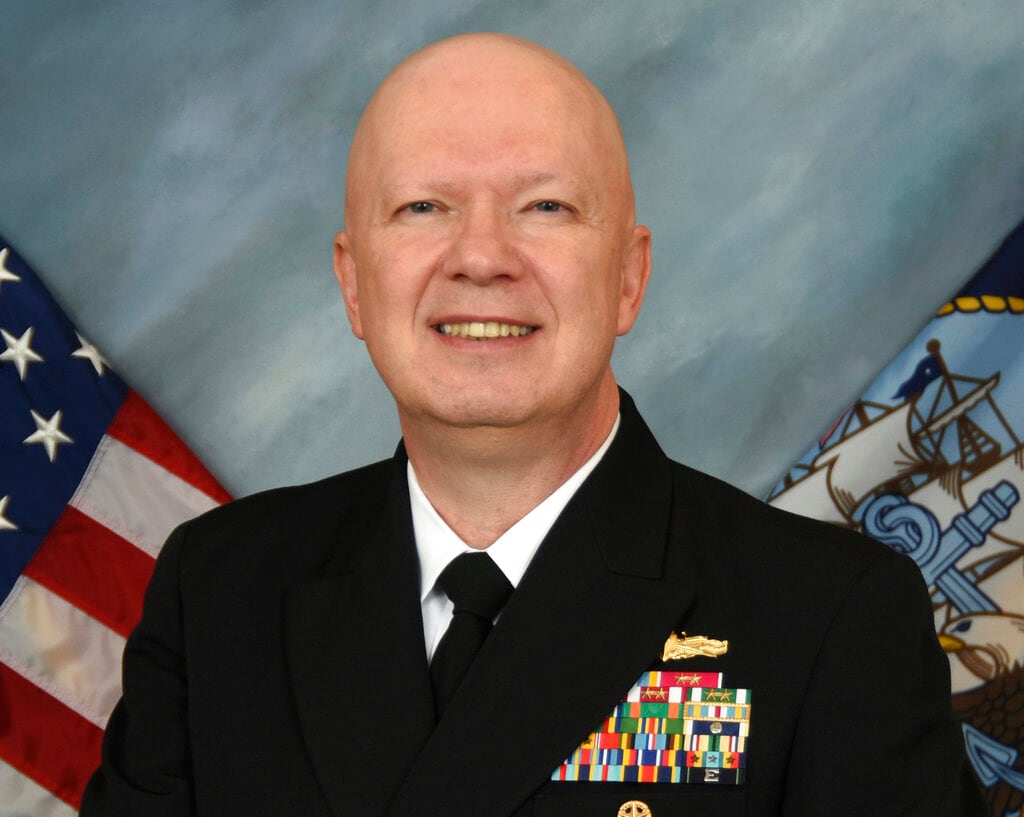Did the Naval War College just experience the country’s first successful naval mutiny?
It is a common misconception to think that mutinies can just happen on ships. The infamous World War II Port Chicago mutiny — in which African-American stevedores refused to load munitions until new safety measures were put in place — is an excellent example of a land-based mutiny.
In the Navy, the word conjures up images of sailors seizing control of a warship from its captain during a revolt. But it also can occur through the secret machinations of a cabal of leaders, like those in Herman Wouk’s 1951 Pulitzer Prize-winning novel “The Caine Mutiny,” which later became a movie starring Humphrey Bogart.
In this case, the Naval War College mutineers used the Associated Press to go outside the chain of command and accuse the former president, Rear Adm. Jeffrey A. Harley, of a whole range of imaginary sins, from doling out “free hugs — half price” to hosting colleagues with margaritas and playing Twister in his office.
At the same time, the reports overlooked the success of his reforms at the Newport, Rhode Island, institution, including correcting a 12 percent gender pay gap among 50 female faculty members.
RELATED

Like Jimmy Stewart in “Mr. Smith goes to Washington,” Rear Adm. Harley took a stand, refusing to plead guilty to a crime he did not commit.
Rather than letting due process take its course — an Inspector General report looms — Chief of Naval Operations Adm. John Richardson short-circuited justice by bowing to the mutineers and relieving Harley.
And that forced a last minute cancellation of the Current Strategy Forum at Newport, resulting in financial losses, including lost donations to the Naval War College Foundation, which hosted the event.
It remains unclear if those losses added up to the shortfalls during Harley’s tenure that have been alleged by his accusers.
As for those accusers, how many of them are retired commissioned officers? Did they not once take an oath to defend the Constitution against all enemies, foreign or domestic? Did they not vow to discharge faithfully the duties of their office? And does that oath not continue into their retired years?
If all of that remains true, then it doesn’t matter if the mutineers are on active duty or retired. By circumventing the ongoing IG investigation and going straight to the Associated Press they are guilty of mutiny.
They broke their oath. By not waiting for the final IG results, they took justice into their own hands.
They should be punished for mutiny and Rear Adm. Shoshana Chatfield, the new president of Naval War College, should examine the evidence against them and, if it fits the crime, bring charges against them.
The Navy always has taken mutiny seriously. On Dec. 1, 1842, the wardroom on board the brig Somers put to death and buried at sea a midshipman and two sailors they accused of plotting a mutiny.
No one is calling for the Naval War College mutineers to swing from the yardarm, but prosecuting them would reveal to the public what really happened in Newport.
In recent years, the scandal-ridden Navy has suffered the Fat Leonard public corruption case, the sharing of nude images by sailors, SEALs accused of war crimes and a string of warship collisions in the 7th Fleet that killed 17 crew members and caused hundreds of millions of dollars in damages.
The “Twisterville” scandal isn’t nearly as important as many of these problems facing the Navy, but there’s still an innocent man who has been undermined by retired military officers who disregarded due process.
They deserve to be punished and Harley deserves to have his good reputation restored.
Dr. Bruce A. Elleman is the William V. Pratt Professor of International History at the Naval War College in Newport, Rhode Island. His views do not necessarily represent those of Navy Times or its staffers.





